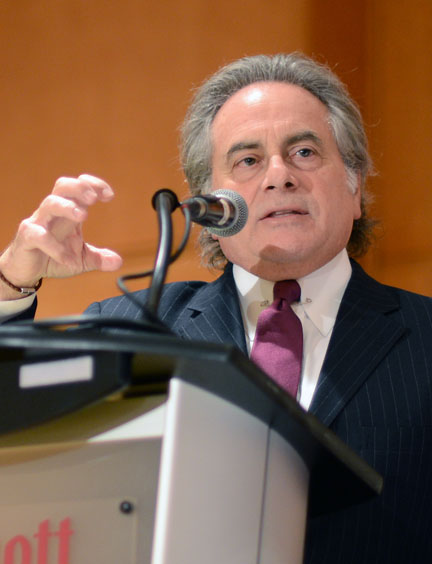High-profile New York defence lawyer Benjamin Brafman used a session at the Criminal Lawyers’ Association conference in Toronto on Friday to call on his Canadian colleagues to tackle the growing challenges posed by technology and social media in the courts.

“It’s very frightening to those of us who believe in the jury process,” said Brafman in reference to jurors’ ability to simply research the cases they’re hearing through Google rather that rely only on the evidence presented in court.
Brafman, who has represented famous accused such as Dominique Strauss-Kahn, used his session to highlight the many ways technology is complicating — but also occasionally helping — the work of defence lawyers in court.
For example, he noted a case in Kentucky in which two jurors had added the mother of a murder victim whose case they were hearing to their list of friends on Facebook. Both, he noted, had said under oath they knew no one connected to the case.
“It was impossible for these people not to know who this woman was,” said Brafman, who noted similar situations have been the cause of several mistrials in the United States.
Given the concerns, Brafman called on lawyers to be aware of the issue and highlighted the need for courts to consider model instructions for jurors. They would include telling jurors they can’t look up the case on social media or the internet and asking them to sign an oath saying they understand the rules. At the same time, judges need to do to more to explain the rules and why they exist, he said.
“We can’t be relaxed,” said Brafman, noting that while technology can sometimes be key to exonerating clients, lawyers also need to understand the legal issues it can present.
“Our systems are very similar, so my concerns should be your concerns,” he said.

 “It’s very frightening to those of us who believe in the jury process,” said Brafman in reference to jurors’ ability to simply research the cases they’re hearing through Google rather that rely only on the evidence presented in court.
“It’s very frightening to those of us who believe in the jury process,” said Brafman in reference to jurors’ ability to simply research the cases they’re hearing through Google rather that rely only on the evidence presented in court.